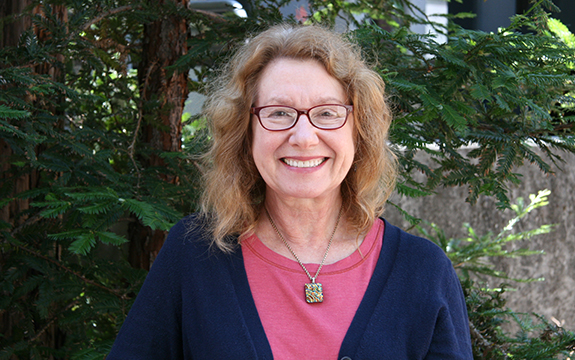Centre for Astrophysics and Supercomputing recruits new director from the US

In Summary
- Professor Jean Brodie appointed as Director of Swinburne’s Centre for Astrophysics and Supercomputing
- Professor Brodie is from the University of California Santa Cruz and her research interests include globular star clusters and galaxy formation
- She succeeds Professor Karl Glazebrook who will commence an ARC Australian Laureate Fellowship
Swinburne’s Centre for Astrophysics and Supercomputing (CAS) has appointed a new director, starting in March 2020.
Jean Brodie joins Swinburne from the University of California Santa Cruz, where she is a Distinguished Professor of Astronomy and Astrophysics.
Professor Brodie succeeds CAS’ current director, Professor Karl Glazebrook, who will commence an ARC Laureate fellowship focused on understanding the early Universe.
Research interests and background
Professor Brodie brings extensive experience in astronomy and research to this new role.
With a PhD in astronomy from the University of Cambridge, Professor Brodie’s research interests include globular star clusters and galaxy formation. She uses globular star clusters as fossil tracers of galaxy history as they are among the oldest radiant objects in the universe and provide important clues about the formation and evolution of galaxies.
Professor Brodie is also the founder and chief investigator of SAGES (Study of the Astrophysics of Globular clusters in Extragalactic Systems), an international research group whose members include Swinburne researchers. This network investigates globular clusters and their host galaxies with a focus on using the world’s best observational facilities to provide fresh clues.
Strong leadership
Professor Brodie says she is delighted to join Swinburne and describes the university as “dynamic and forward-thinking.”
“I am committed to helping Swinburne’s Centre for Astrophysics and Supercomputing build on its already strong foundation. The centre has excellent people and rapidly growing international recognition,” she says.
Deputy-Vice Chancellor (Research and Development), Professor Aleksandar Subic, says the Centre for Astrophysics and Supercomputing is achieving world-leading outcomes.
“This is an exciting time as we work together to position Swinburne at the pinnacle of the space research discipline globally,” he says.
“In the past five years, the Centre has achieved remarkable growth by successfully participating in two new ARC Centres of Excellence, and by hosting two ARC Australian Laureate Fellows and Highly Cited researcher in space science,” he says.
“I would like to welcome Professor Jean Brodie, one of the leading female astronomers in the world, and thank Professor Karl Glazebrook for his leadership of the Centre since 2014.”
Recent achievements
The Centre for Astrophysics and Supercomputing was recently awarded the Pleiades Silver Award from the Australia Society for Astronomy.
The Pleiades Awards aim to encourage organisations to promote equity and inclusion. The Silver Pleiades recognises organisations with a sustained record of at least two years monitoring and improving the working environment and being an example of best practice to other astronomy organisations.
Recent figures show the number of women gravitating towards astronomy-related study at Swinburne is increasing. For example, around 22 per cent of students enrolled in postgraduate courses in astronomy are female – higher than the national average of 17 per cent for women in science, technology, engineering and mathematics (STEM) disciplines.

